There are definitely times when watching Ballroom e Youkoso that my abject lack of knowledge about ballroom dancing generally – and competitive specifically – frustrates me. I’m sure the series’ depiction isn’t photo-realistic or anything (nor would I expect it to be), but it clearly makes an effort to dig into the details and to get them right. More so than, say, volleyball or karuta, I feel as if not getting the subtleties really hampers my appreciation of the challenges facing the cast (especially Tatara). Whether that’s a function of the sports in question or the manner in which they’re portrayed, I couldn’t say.
Take, for example, the issue of leading and following. I know that ballroom dance couples have a partner who leads – I’m not a complete ignoramus – but what does that mean, exactly? It’s not something that reading the Wikipedias of the world can really answer, either – and it’s a crucial point. One of the criticisms I’ve seen of Ballroom e Youkoso is that the female characters are too passive (especially Shizuku). But traditionally, it is the male partner who leads and the female who follows – on the dance floor, at least. To what extent does she impart her own influence on the end product a dance couple produces, in competition or otherwise?
This is a critical matter for this arc, obviously. You have the beginner Tatara trying to partner with the experienced but timid Mako-chan, whose previous partner (her brother) railed against her for not offering any input into their routines. And the nature of the wager that underpins this competition is a factor, too, because it’s all about Mako proving she’s good enough to stay with Gaju – by dancing with someone else. Tatara seems to take the approach of trying to take everything onto his own shoulders, which is understandable and may reflect his own lack of understanding of the fine details of a dance partnership. But clearly, though the chibi couple does keep scraping by round by round (Tatara’s earnest appreciation of dance is winning over Tenpei-san for sure), it’s not really working.
There’s another issue, too, which is that Tatara is dancing “too big”. This I sort of get – he’s a novice unused to the rigors of a full tournament (Sengoku says he normally loses 2 kilos in one, and unlike Tatara he can spare them), and his learning style is imitation so he’s trying to parrot the routines he’s seen Sengoku and Hyodo do. Tatara is inexperienced, yes, but immature physically as well – he needs a scaled-down program for his scaled-down body. But he lacks the experience to know that, and because his coach is clearly incompetent at coaching, he’s not getting any direction either. If indeed Tatara is really Sengolu’s first student as Marisa says, I suppose that would be his excuse for being such a failure as a mentor, but given all the strikes against him I think it’s remarkable that Tatara is doing as well as he is.
Hyodo-kun does, at least, try and offer Tatara some guidance – though it confuses him as much as guides him. That Tatara can’t beat Gaju at this stage is the easy part to understand – that’s obvious. But Hyodo’s advice to beat Shizuku is where things get difficult. What Hyodo seems to be saying is that Tatara-kun needs to concentrate on making Mako better – to be her “frame”, as he puts it. If Tatara was guilty of “dancing by himself” as Kiyoharu says, then he’s really only doing what Gaju-kun did when he danced with Mako. And since we know that really didn’t work – and indeed, led us to the straits we’re currently in – it only makes sense for Tatara to try and do more by doing less.
Given that this is a shounen – and not just a shounen, but an especially “shounen” one – the focus on the battle of wills between the boys is expected. But I too am at the point where I want to see the girls assert themselves more (and less focus on the lamer fanservice gags from the manga). I enjoyed seeing a Shizuku-Tatara moment because they’ve been few and far-between lately, but even here Shizuku stresses how she’s certain that the “special” Kiyoharu-kun will leave her behind. Leading and following may be part of ballroom dance, but there’s no reason why Shizuku and Mako shouldn’t be protective of their own destiny as far as who they partner with – it should be their choice and no one else’s. But so far – especially with Shizuku – we’ve had precious little indication of their feelings on that question. Tatara, at least, seems like a boy who’s in command of his own ego enough to embrace that, and I hope we start to see a lot more of it in the next few episodes.


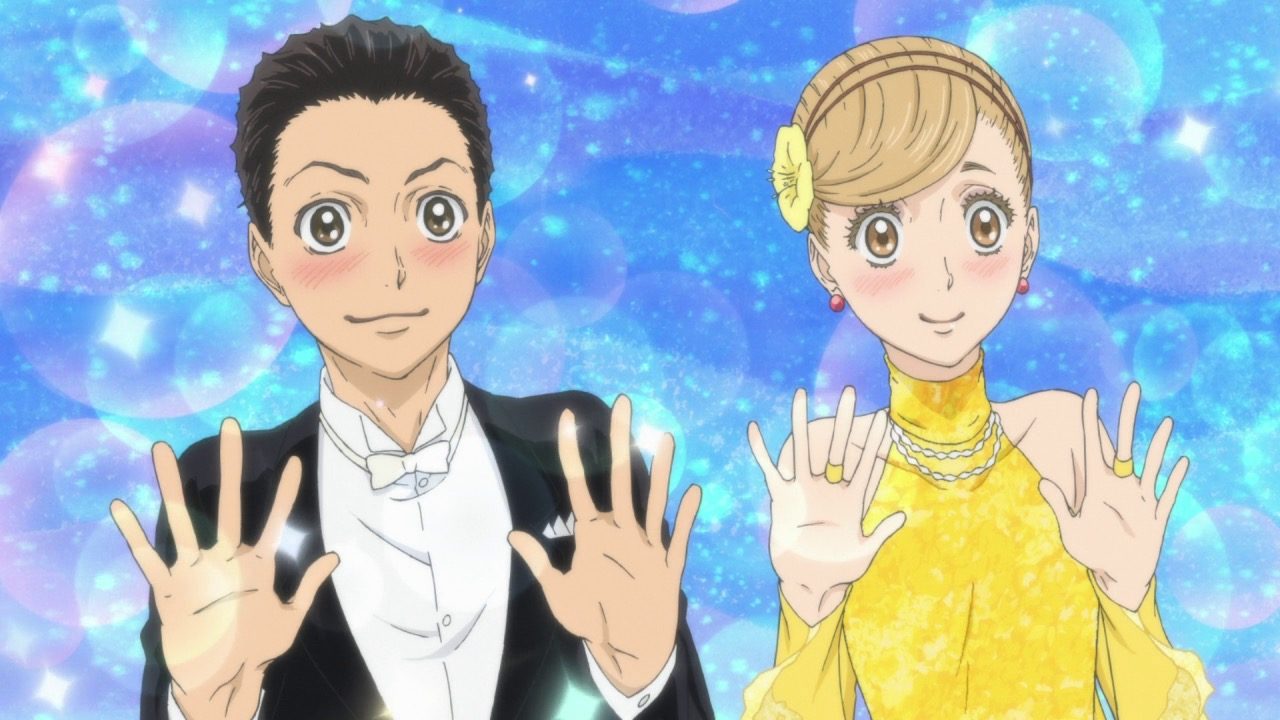

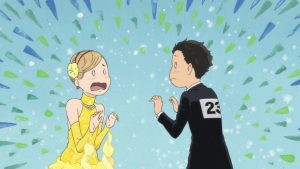
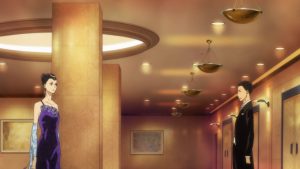
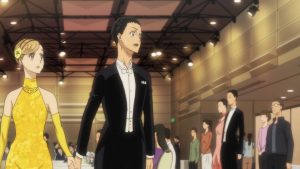
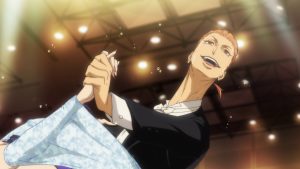

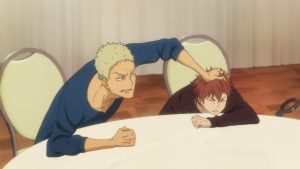
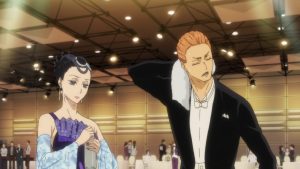
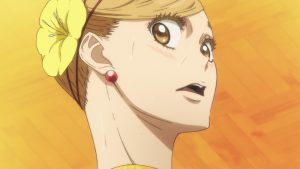
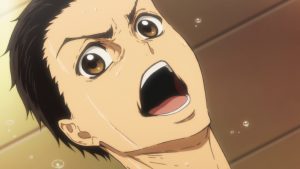
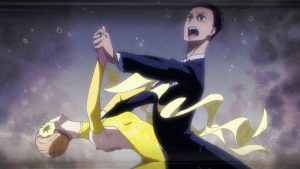
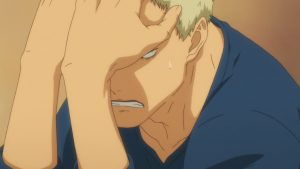
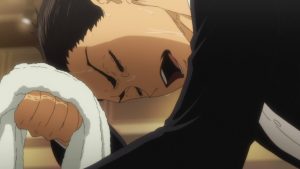
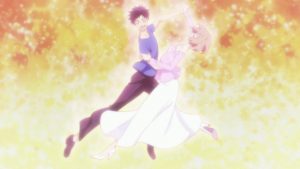
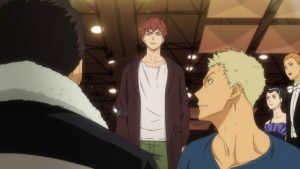
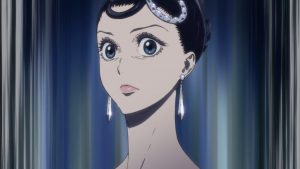

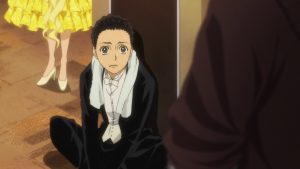
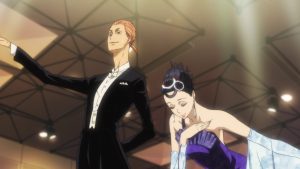
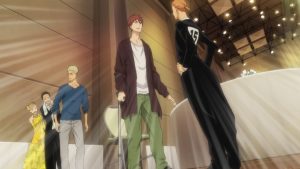
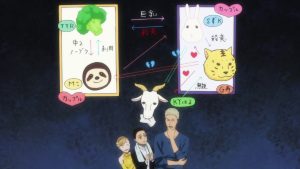
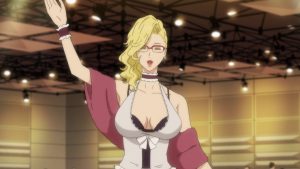
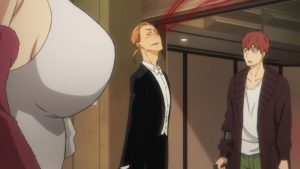
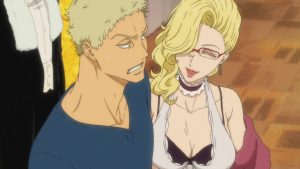
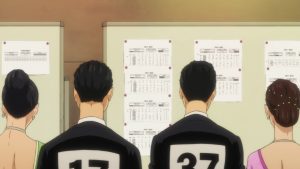

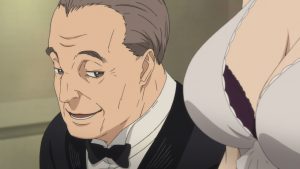
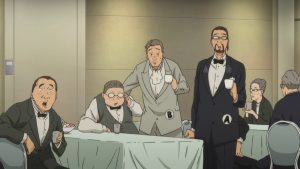
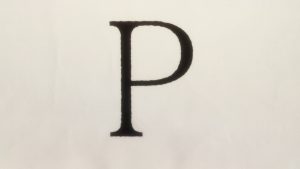
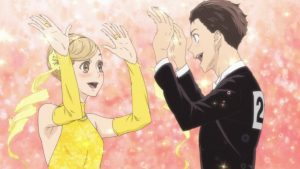
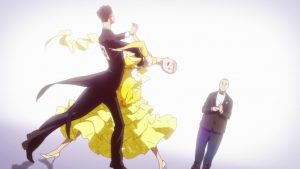

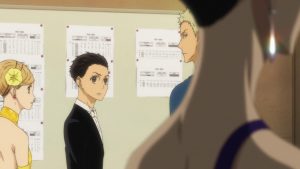
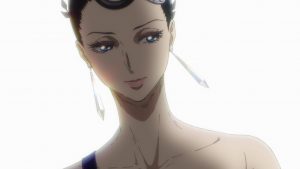
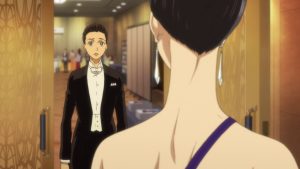

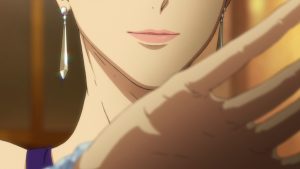
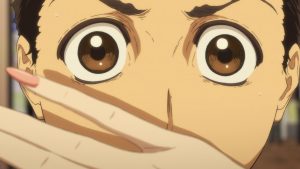

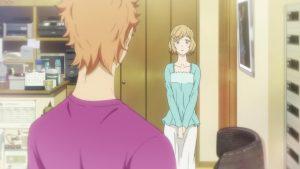







Anne
August 26, 2017 at 4:09 pmFirst of all, I just want to say I enjoy reading your reviews—you’re one of the more insightful ones out there 🙂
I don’t know much about ballroom dancing, either, but I like this series and I’m glad to see you covering it. May I suggest watching Shall We Dance? Not the Richard Gere one, but the Japanese original. I’m familiar with the ballroom dancing terms in Ballroom thanks to that film, and SWD is almost similar to Ballroom in a way (I could be wrong—haven’t rewatched SWD in over a decade).
Guardian Enzo
August 26, 2017 at 4:45 pmThanks – appreciate that. Is it available anywhere, like Netflix or anything?
Anne
August 27, 2017 at 3:03 amOh! I’m not sure about Netflix since it seems not all of the movies and tv series are available where I’m from (Philippines), unless they are Netflix Originals. Sorry I’m not much help! 🙁 I hope you’ll be able to find it where you are. It’s a fairly old movie (mid 90s) and starred Yakusho Koji.
Molly
August 27, 2017 at 2:28 amI read this part of the manga and I can’t wait for the next episode… Flower and Frame is the highlight of the Tenpei Cup Arc for sure.
leongsh
August 27, 2017 at 5:25 amDancing is a partnership. Based on what is said and shown so far, I believe understand what it means for Tatara to be a frame. Tatara has been leading aggressively and attracting the attention while Mako being her old self in keeping up with Tatara. To be a frame, Tatara has to scale back his movements and to show Mako off to be the focus of attention. Mako, in turn, needs to dance a bit more flamboyant to attract the attention. Looking forward to this next week.